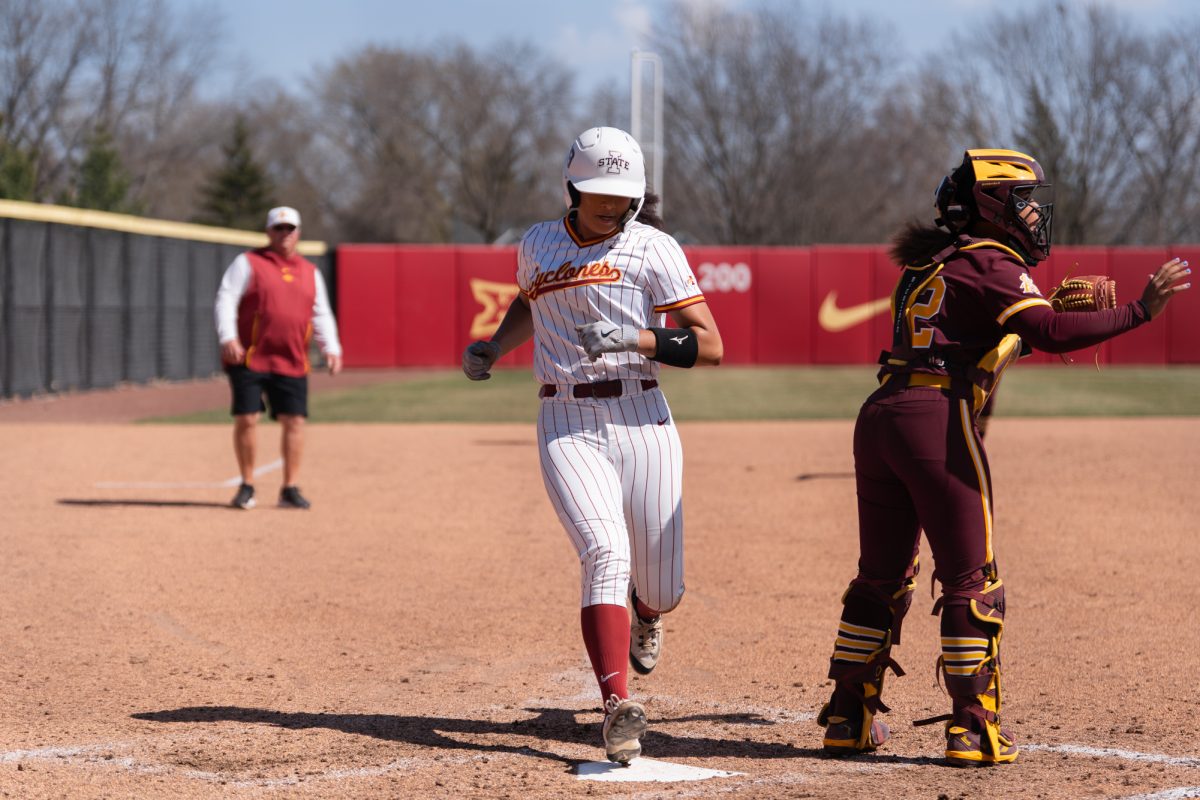Greek houses could need sprinklers
January 19, 2006
Jeff Czerniak, junior in materials engineering and president of Delta Upsilon, stands outside the room in the fraternity that was damaged by fire in 2004. The fire was the most recent serious fire in the ISU greek system, but the room has been repaired. An ordinance proposed by the Ames City Council would require sprinkler systems in greek houses.
Under a proposed Ames city ordinance, many of the houses in the greek community could be required to install sprinkler systems within the next five years.
The proposed ordinance is limited to three categories of building structures – dormitories, high-rise buildings and residences with occupants that have impractical evacuation capabilities, such as nursing homes. Greek houses would be included in the ordinance as dormitory structures.
According to a report presented to the Ames City Council on Jan. 10, 38 of the 42 greek houses in Ames are currently occupied, but only 17 of them have sprinkler systems. If the ordinance passes later this spring, the remaining fraternities and sororities would require a retro-fit of sprinklers.
Iowa State has implemented a program to equip its dormitories with sprinkler systems.
Russ Scott, deputy chief of the Ames Fire Department, said a change of international codes in 2003 has allowed for the buildings to be retro-fitted with a more economically-friendly system.
“Past codes required a system in which there was hard pipe and the intent was to protect people and the structure,” Scott said.
Since 1979, nine serious fires have struck greek houses, where occupants and house members felt fortunate there were not multiple deaths, according to the report. In 2004, a serious fire occurred in Delta Upsilon, 117 Ash Ave. In 1997, another occurred in Pi Beta Phi, 208 Ash Ave., and in 1996, two separate fires seriously damaged Theta Chi, 219 Ash Ave., and Phi Kappa Psi, 316 Lynn Ave.
Additional valves for non-heated places, such as attic and storage areas, in combination with more expensive materials, are what made complying to the former codes more expensive, Scott said.
The cost of implementing a sprinkler systems in greek residences could vary greatly, because each greek house has unique architectural features, Scott said.
According to the report, the estimated range of costs is between $3.45 and $7 per square foot, which the greek houses will fund themselves.
Jennifer Plagman-Galvin, program coordinator for the Dean of Students Office, said there are a number of avenues the greeks could take to fund the systems. Those include a possible city tax abatement program, low-interest loans from national organizations and tapping into savings.
“Chapters have known for awhile that this could soon be on the horizon,” she said.
Ryan Doll, city councilman for the 3rd Ward, said that he is in support of the ordinance as long as the concerns of those affected are addressed.
“This is definitely something that’s needed,” Doll said.
Doll added that preservation of the greek houses, because of their historical significance, brings in another dimension to the issue.






